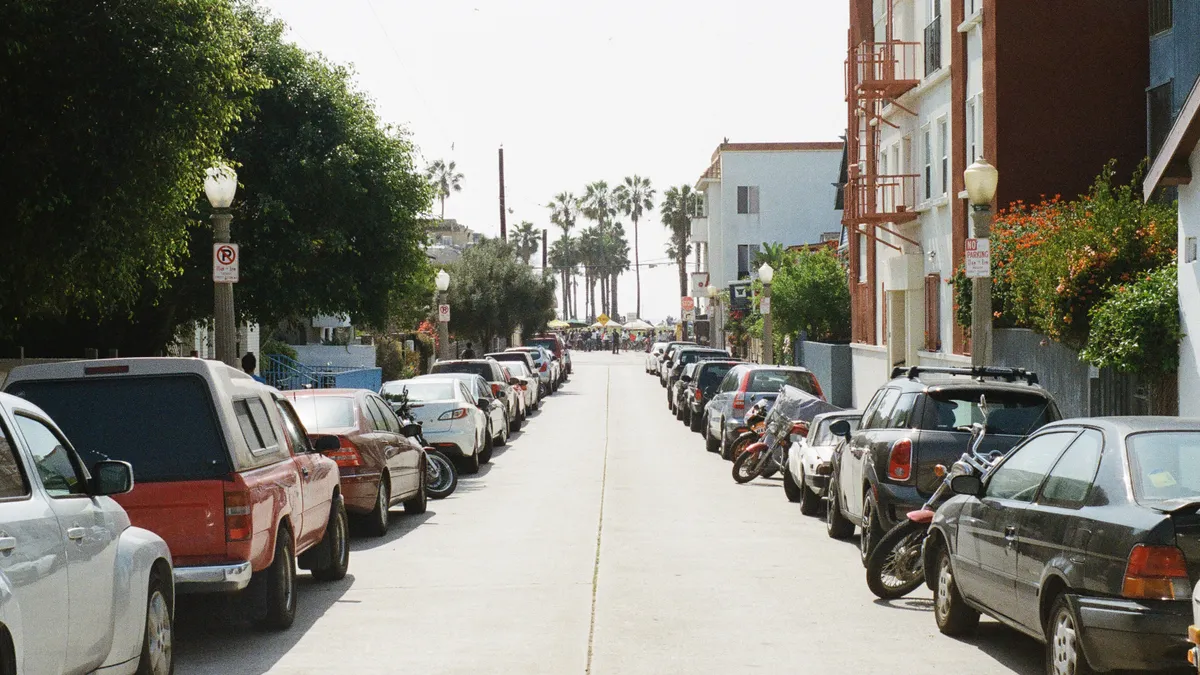UPDATED: Dec. 11, 2019: Transportation for America (T4A) announced it will provide Bellevue, WA, Boston and Minneapolis with funding and support for curbside management projects as part of its Smart Cities Collaborative.
The three cities have committed to a one-month pilot program to address curb management on at least one city block, while 12 to 15 peer cities will learn from their experiences. The peer cities are due to be announced next week.
In a statement, T4A Director Beth Osborne said the three pilot cities will help "identify best practices and guidelines for better curbside management."
Dive Brief:
- Advocacy group Transportation for America (T4A) is seeking applicants to iterate on the management of curb space, part of the third cohort for its Smart Cities Collaborative.
- The three cities chosen to participate must commit to a one-month pilot program, which will cover at least one city block and provide event space for in-person meetings. There are also spaces for between 12 and 15 peer cities, which can learn from the pilot cities' experiences.
- City governments identify the curb as "the most valuable asset they own," but many haven't used it to "its greatest potential." T4A said in a blog post it wanted to close that gap.
Dive Insight:
Much is happening at the curb and management remains a major issue.
Cities wrestle with the competing needs of ride-hailing, on-street parking and delivery trucks, while ensuring that dockless bikes and scooters aren't strewn about the public right-of-way.
Some have gotten a better handle on activity through partnering with Coord and other private companies to keep track of data and regulations or SpotAngels in Las Vegas which pushes drivers towards empty parking spaces.
Curb management has been a cornerstone of partnerships between Uber and Cincinnati, while Charlotte, NC; Detroit; and Omaha, NE piloted a platform to charge for curb space for all micromobility modes. And Washington, DC partnered with curbFlow for management solutions for curb space and improved safety.
This collaboration is an opportunity for cities to learn how to manage their curbs, and its emphasis on pilot programs should allow for experimentation and innovation.
To benefit from technology, especially in mobility, cities need to understand how curbs are being used and begin to implement solutions.
"We're past theorizing," T4A wrote in a blog post.













